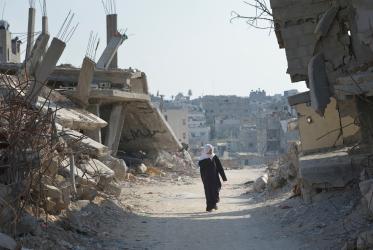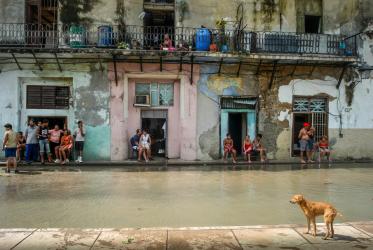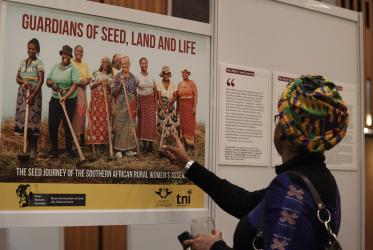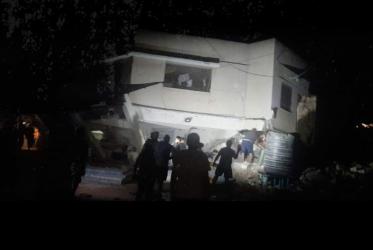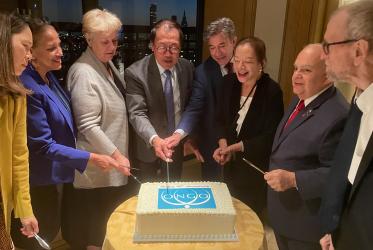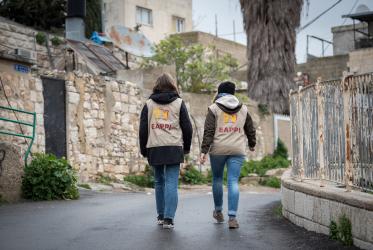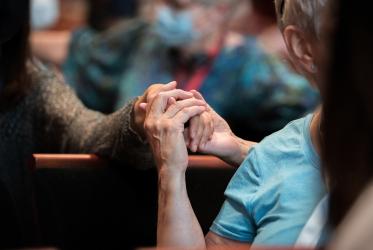Displaying 141 - 160 of 4351
WCC will host hybrid event on mental health advocacy
10 November 2023
75 years of mental health advocacy: achievements, challenges, and the future.
17 November 2023
Ecumenical center in Geneva and online
“Quieren vivir sin miedo ni acoso constante”
31 October 2023
WCC guide raises awareness of obstetric fistula
26 October 2023
A Guide for Churches on the Prevention of Obstetric Fistula
26 October 2023
“The occupation can’t last forever”
25 October 2023
“They want to live without fear and constant harassment”
25 October 2023
